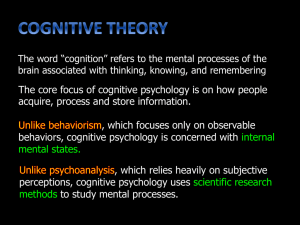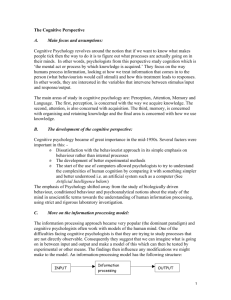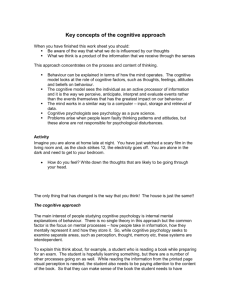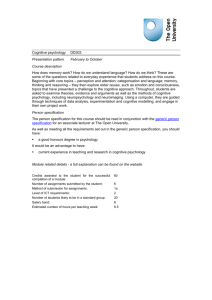The Cognitive Perspective
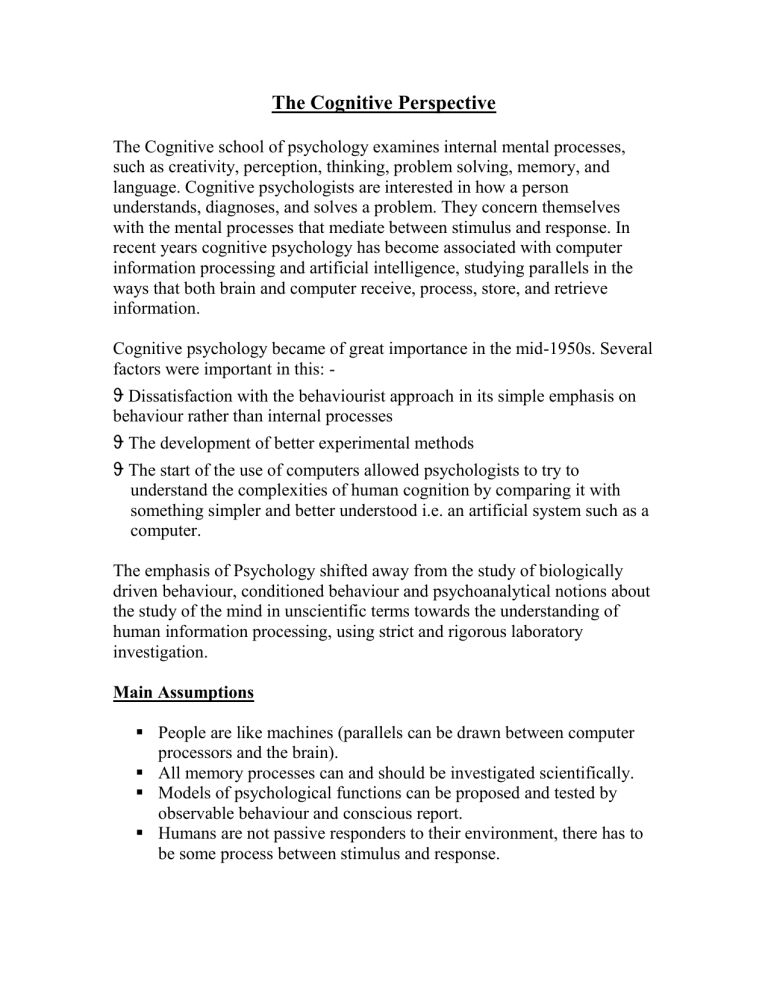
The Cognitive Perspective
The Cognitive school of psychology examines internal mental processes, such as creativity, perception, thinking, problem solving, memory, and language. Cognitive psychologists are interested in how a person understands, diagnoses, and solves a problem. They concern themselves with the mental processes that mediate between stimulus and response. In recent years cognitive psychology has become associated with computer information processing and artificial intelligence, studying parallels in the ways that both brain and computer receive, process, store, and retrieve information.
Cognitive psychology became of great importance in the mid-1950s. Several factors were important in this: -
ϑ
Dissatisfaction with the behaviourist approach in its simple emphasis on behaviour rather than internal processes
ϑ
The development of better experimental methods
ϑ
The start of the use of computers allowed psychologists to try to
understand the complexities of human cognition by comparing it with
something simpler and better understood i.e. an artificial system such as a
computer.
The emphasis of Psychology shifted away from the study of biologically driven behaviour, conditioned behaviour and psychoanalytical notions about the study of the mind in unscientific terms towards the understanding of human information processing, using strict and rigorous laboratory investigation.
Main Assumptions
People are like machines (parallels can be drawn between computer processors and the brain).
All memory processes can and should be investigated scientifically.
Models of psychological functions can be proposed and tested by observable behaviour and conscious report.
Humans are not passive responders to their environment, there has to be some process between stimulus and response.
Topics you may talk about
Memory
A.I.
Computer Analogy
Information Processing Approach
Evaluation of the Cognitive Approach
Strengths
It adopts scientific procedure to develop and test theories using experimental techniques. This approach is also the dominant approach in modern psychology.
The use of models, such as the computer, helps us understand mental processes (although these also have limitations).
The approach shows that experiments can be used to understand mental processes that are not directly observable.
Limitations
The cognitive approach tends to ignore biology and the influence of genes. It has also tended to ignore individual and personality differences between people.
The approach is often seen as providing a mechanistic view of human thought, and has not taken sufficient account of emotions and how they interact with mental processes.
Some psychologists, for example humanistic psychologists, question the value of a purely scientific approach to understanding how people think, feel and behave.
